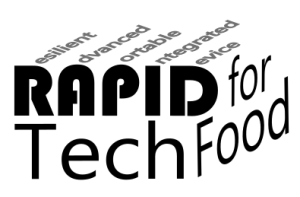We have been developing multimodal platforms for rapid, inexpensive, and sensitive pathogen detection in different stages of the food chain, from “farm to fork”. Specifically, designing portable micro-engineered devices based upon technologies mastered in the resaerch centers of the two (Oppenheimer, UoB and Jelinek, BGU). Building upon these research activities, we aim to cement and strengthen collaboration between UoB and BGU researchers, particularly in the context of “clean growth” as related to food research.
Our joint project is focussed on the establishment of comprehensive research initiatives carried out in the Oppenheimer and Jelinek Laboratories, aimed at development of multimodal sensing platforms for foodborne and waterborne pathogens. This goal has been realized through the activities outlined in ‘Events’.
Our longer-term aim is to leverage the program for establishment of a bi-university Research Center focused on bacterial sensor development, which will integrate relevant activities in the two institutions.
This international initiative has been further facilitating new collaborations with considerable overlap and complementarities. Both UoB and BGU promote Biomedical Technologies, which is at the core of the collaboration efforts of the leading groups (including recent significant investments).
The Wohl Program has significantly contributed to strengthening and expanding both the collaborative efforts between the Oppenheimer and Jelinek laboratories and nurture new ideas and experimental directions. In a broader context, implementing this program helped UoB and BGU to initiate new, exciting opportunities for staff and students’ exchange as well as allow for developing innovative collaborative research directions.
